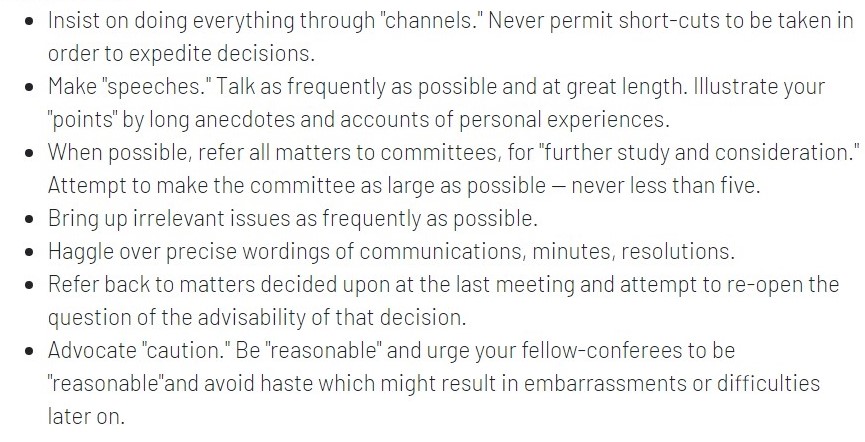The following is taken from a Twitter thread by user @G_S_Bhogal. These are fairly good concepts to grasp and know to better understand the world we are living in.
Abstraction: There are scales of explanation. A human can be considered a person, mammal, collection of cells, collection of stardust. Sometimes the reason people can’t see eye to eye is that they’re unwittingly considering things at different levels of abstraction.
Scope Neglect: We evolved for the small scale of tribal life, so we can’t comprehend the big numbers that recently entered human life. We can appreciate the difference between 50 and 100, but not a million and a billion. It’s why we often treat geopolitics like family politics.
The Law of Very Large Numbers: Given a wide enough dataset, any pattern can be observed. A million to one odds happen 8 times a day in NYC (population 8 million). The world hasn’t become crazier, we’re just seeing more of everything.
Benford’s Law: Numbers in natural sets of data are not uniformly distributed (e.g. 30% of numbers have 1 as their first digit). Used by the IRS and other tax agencies to determine if you’ve lied about your finances.
Brandolini’s Law (aka the Bullshit Asymmetry Principle): It takes a lot more energy to refute bullshit than to produce it. Hence, the world is full of unrefuted bullshit.
The Toxoplasma of Rage: The ideas that spread most are not those everyone agrees with, but those that divide people most, because people see them as causes to attack or defend in order to signal their commitment to a tribe. h/t: @slatestarcodex
Network Effect: The more people using a network, the more useful it becomes. A phone gains utility as more people use phones because more people can be called with it. It’s why Twitter & Facebook are so dominant; we’re stuck on these platforms because everyone else is.
Paradox of Abundance: Easy availability of food led to obesity for the masses but good health for the few who used the increased choice to avoid the mass-produced junk. Equally, you can avoid intellectual diabetes by ignoring junk info like gossip & clickbait. h/t: @david_perell
Parkinson’s Law: Work expands to fill the time allotted for it. No matter the size of the task, it will often take precisely the amount of time you set aside to do it, because more time means more deliberation & procrastination.
Flow States: You’re in flow when you’re so engrossed in a task that the world vanishes and the work seems to do itself. Flow is automatic, and it makes work much easier than you imagined. All you have to do is overcome the initial hurdle of beginning a task; flow does the rest.
The Curse of Knowledge: The more familiar you become with an idea the worse you become at explaining it to others, because you forget what it’s like to not know it, and therefore what needs to be explained to understand it. Makes it hard to write threads like this!
Status Quo Bias: Those who were unfazed by Covid because it had a ~1% fatality rate were suddenly concerned about vaccines when they yielded a 1 in a ~million fatality rate. People see the risks of doing something but not the risks of doing nothing.
Semmelweis Reflex: People tend to reject evidence that doesn’t fit the established worldview. Named for Ignaz Semmelweis, a surgeon who, before the discovery of germs, claimed washing hands could help prevent patient infections. He was ridiculed and locked away in a mental asylum
Planck’s Principle: “Science progresses one funeral at a time.” Scientists, being human, don’t easily change their views, so science advances not when scientists win or lose arguments, but when they die so that younger scientists with more refined views can take their place.
Bias Against Null Results: Studies that find something surprising are more interesting than studies that don’t, so they’re more likely to be published. This creates the impression the world is more surprising than it actually is. Also applies to news, Twitter.
p-hacking: “If you torture the data for long enough, it’ll confess to anything.” Academics get around the Bias Against Null Results by performing many statistical tests on data until a significant result is found then recording only this. p-hacking is largely why we have a…
Replication Crisis: A large proportion of scientific findings have been found to be impossible to replicate, with successive tests often yielding wildly different results. Too many studies are bunk to take any of them at face value.
Luxury Beliefs: Cultural elites often adopt views that signal status for them but hurt the less fortunate. E.g. Those who claim that concern about Islamism is Islamophobic appear open-minded but in fact dismiss the (usually Muslim) victims of such extremism. h/t: @robkhenderson
Bulverism: Instead of assessing what a debate opponent has said on its own merits, we assume they’re wrong and then try to retroactively justify our assumption, usually by appealing to the person’s character or motives. Explains 99% of Twitter debates.
Scout Mindset: We tend to approach discourse with a “soldier mindset”; an intention to defend our own beliefs and defeat opponents’. A more useful approach is to adopt a “scout mindset”; an intention to explore and gather information. h/t: @JuliaGalef
Operation Mindfuck: A conspiracy theory that can protect you from conspiracy theories. The Operation is being conducted by persons unknown, and is a plot to make you believe lies. Whenever you receive information, ask yourself, is this part of Operation Mindfuck?
Hitchens’ Razor: What can be asserted without evidence can be dismissed without evidence. If you make a claim, it’s up to you to prove it, not to me to disprove it.
Decision Fatigue: The more decisions you make in a day, the worse your decisions get, so rid your life of trivial choices. Steve Jobs, Barack Obama & Mark Zuckerberg have been known to wear only 1 or 2 outfits to work so they don’t have to choose each day.
Cumulative Culture: Humanity’s success is due not to our individual IQs but to our culture, which stockpiles our best ideas for posterity so they compound across generations. The ideas we adopt from society are often far older than us, and far wiser. h/t: @SteveStewartWilliams
Chesterton’s Fence: If an old law or tradition seems so irrational that you want to scrap it, then you shouldn’t scrap it. The fact it’s survived the ages despite seeming irrational means it must have a purpose. Before acting, understand that purpose. An argument for conservatism
The Veil of Ignorance: Create a constitution for a country as though you could wake up tomorrow in the body of any citizen, of any race, religion, or gender, and be forced to live as them in the society you’ve created. A central idea behind liberalism.
Tragedy of the Commons: The Rapa Nui people of Easter Island felled trees for wood until there were not enough trees to provide food, causing mass starvation. Everyone acting in their own interests can create outcomes against everyone’s interests. Common argument for regulation.
Purposeful Stupidity: Common argument against regulation. In 1944, the OSS (now known as the CIA) published a field manual laying out strategies to subtly sabotage a society from within. The tactics described are eerily similar to what passes for normality today.

Mediocracy: Democracy works not because it picks the best leaders, but because it picks the most average leaders. The purpose of democracy is not so much progress as preservation. h/t: @Mmay3r
The Messiah Effect (my term): most people don’t believe in ideals, but in people who believe in ideals. Hence why successful religions tend to have human prophets or messiahs, and why when a demagogue changes his beliefs, the beliefs of his followers often change accordingly.
Original Twitter thread: https://twitter.com/G_S_Bhogal/status/1438972527838117895?s=19


